University signs up writing stars to share their success with students
Posted Thursday 24 March 2011
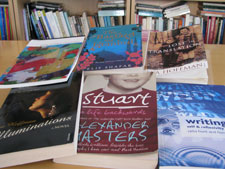 Four distinguished wordsmiths will be sharing the secrets behind their success with Kingston University students after being snapped up as writers in residence. An internationally-renowned author and academic, the most widely read woman writer in Turkey, a prize-winning poet and editor and the author and illustrator of a biography of a homeless man from Cambridge are the latest additions to the University's Creative Writing team.
Four distinguished wordsmiths will be sharing the secrets behind their success with Kingston University students after being snapped up as writers in residence. An internationally-renowned author and academic, the most widely read woman writer in Turkey, a prize-winning poet and editor and the author and illustrator of a biography of a homeless man from Cambridge are the latest additions to the University's Creative Writing team.
The quartet joins a prestigious list of published professionals including novelist, short story writer and scriptwriter Hanif Kureishi author of My Beautiful Laundrette and Buddha of Suburbia, novelists Rachel Cusk and Paul Bailey and playwright Barrie Keeffe.
New arrivals Dr Eva Hoffman, Elif Shafak, Dr Fiona Sampson and Alexander Masters will be teaching on the University's Master of Arts and Master of Fine Arts courses in creative writing as well as supervising dissertations and speaking at Kingston workshops and conferences. Polish-born Dr Hoffman is a globally-recognised author and academic, while Turkish author Ms Shafak has produced best-selling novels in both Turkish and English and her work has been translated into more than 30 languages. Poet and critic Dr Sampson has published 17 books with her latest work shortlisted for both Forward and T.S. Elliot prizes. Mr Masters has won numerous awards for his work including the Arts Council Writers' Award, Guardian First Book Award and was shortlisted for the Whitbread Book of the Year Award in 2005.
The University will officially launch the Kingston Writing School at the RSA (Royal Society for the encouragement of Arts, Manufactures and Commerce) in London on May 3. Dr David Rogers, Head of Humanities at the University, said the latest signings demonstrated how Kingston had become a hot-bed for writers to share ideas and network. "Our creative writing students have a reputation for being dynamic, challenging, inventive and not afraid to take risks and I think writers really respond to that," he said. "The old cliché that writing is a lonely business is true and writers seem to relish the opportunity to get out of the house and teach their craft so it's mutually beneficial. Students sometimes even get the chance to see writing before it's published and give feedback or hear about how an individual works."
Eva Hoffman
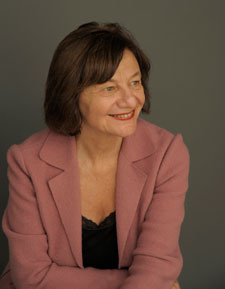 Dr Hoffman's publications including the autobiographical Lost in Translation, Exit Into History, and Shtetl draw on her heritage as the child of Jewish parents who survived the Holocaust. She has also penned two novels The Secret and Illuminations. Dr Hoffman has extensive teaching experience, having worked with the University of East Anglia in the UK and Massachusetts Institute of Technology, Columbia University and Hunter University in the US.
Dr Hoffman's publications including the autobiographical Lost in Translation, Exit Into History, and Shtetl draw on her heritage as the child of Jewish parents who survived the Holocaust. She has also penned two novels The Secret and Illuminations. Dr Hoffman has extensive teaching experience, having worked with the University of East Anglia in the UK and Massachusetts Institute of Technology, Columbia University and Hunter University in the US.
"Kingston provides a very lively, intellectual and creative environment," she said. "Being in touch with a varied and multi-cultural student body and dealing with their writing, even if it's not perfect or finished, is a way of thinking about one's own writing. You learn by teaching, it allows a certain degree of mutual influence."
As a freelance writer working alone Dr Hoffman said she also appreciated working with university colleagues and is helping to organise a Life Writing and Human Rights conference, hosted by Kingston's Centre for Life Narratives in July.
Elif Shafak
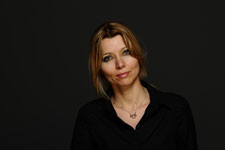 Ms Shafak, who divides her time between London and Istanbul, has published nine books, seven of which are novels. She blends Western and Eastern traditions of storytelling to generate fiction that is both local and universal. Her next novel tells the story of a Turkish/Kurdish family living in London in the 70s.
Ms Shafak, who divides her time between London and Istanbul, has published nine books, seven of which are novels. She blends Western and Eastern traditions of storytelling to generate fiction that is both local and universal. Her next novel tells the story of a Turkish/Kurdish family living in London in the 70s.
"Teaching is a stimulating experience. It's inspirational to be with young people - it helps me to re-imagine certain scenes and subjects in my own writing," she said.
Ms Shafak advised aspiring writers that they needed to be driven by passion for their art. "I believe everyone finds their individual path, however it makes a huge difference if they're doing the thing they love - it's energising and keeps you going. You may write 200 pages and throw half away - you can only do that if you love what you do."
Fiona Sampson
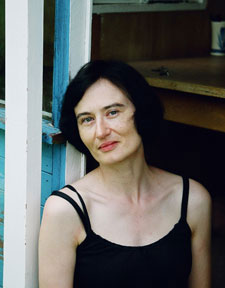 Dr Sampson, whose latest publication, a selection of poetry by Percy Bysshe Shelley is due out in May, said: "I want to offer students the kind of experience that I'd love to have had - the experience of working closely with an established poet. I can offer them both an editor's and a poet's eye, and a strong knowledge of what's going on in contemporary poetry."
Dr Sampson, whose latest publication, a selection of poetry by Percy Bysshe Shelley is due out in May, said: "I want to offer students the kind of experience that I'd love to have had - the experience of working closely with an established poet. I can offer them both an editor's and a poet's eye, and a strong knowledge of what's going on in contemporary poetry."
She described Kingston students as "a sparky bunch" who were far more dynamic than conventional students with similar middle-class backgrounds. "They tend not to have done other creative writing courses so they're fresh and determined," she said. "That makes them more interesting and fun to teach."
Alexander Masters
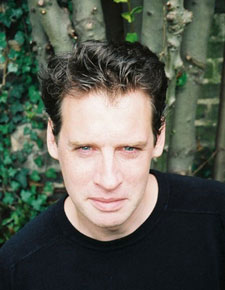 Mr Masters wrote Stuart: A Life Backwards, a biography of Stuart Shorter, who went from a happy childhood to become a criminal and violent junkie living rough on the streets of Cambridge. His latest book, a biography of a mathematical prodigy who lived in Masters' basement, is due out in September.
Mr Masters wrote Stuart: A Life Backwards, a biography of Stuart Shorter, who went from a happy childhood to become a criminal and violent junkie living rough on the streets of Cambridge. His latest book, a biography of a mathematical prodigy who lived in Masters' basement, is due out in September.
"When I talk with students at Kingston about what's gone wrong with their writing, I realise that's exactly how I messed up my work this morning too - better rush back and correct that!" Mr Masters said. "In a good workshop discussion, everyone gets new insights." A maths and physics graduate, Mr Masters said his top tip for new writers was to find an easily-bored reader and pay them whatever it took to be their critic. "If your critic yawns, ditch the page," he said.
Contact us
General enquiries:
Journalists only:
- Communications team
Tel: +44 (0)20 8417 3034
Email us



